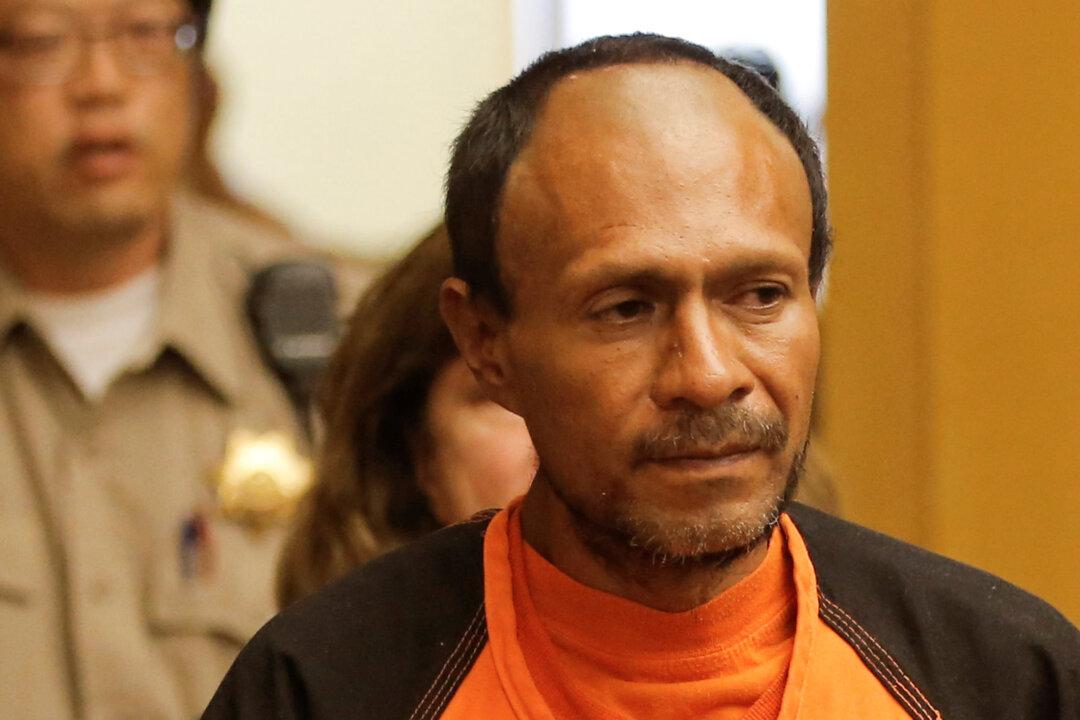A U.S. attorney clarified the status of the illegal immigrant who fatally shot Kate Steinle in San Francisco in 2015, saying he “has no right to possess a firearm under federal law, even if California extends him sanctuary.”

Jose Ines Garcia Zarate, arrested in connection with the July 1, 2015, shooting of Kate Steinle on a pier in San Francisco is led into the Hall of Justice for his arraignment in San Francisco, Calif., on July 7, 2015. Michael Macor/Reuters
|Updated:




